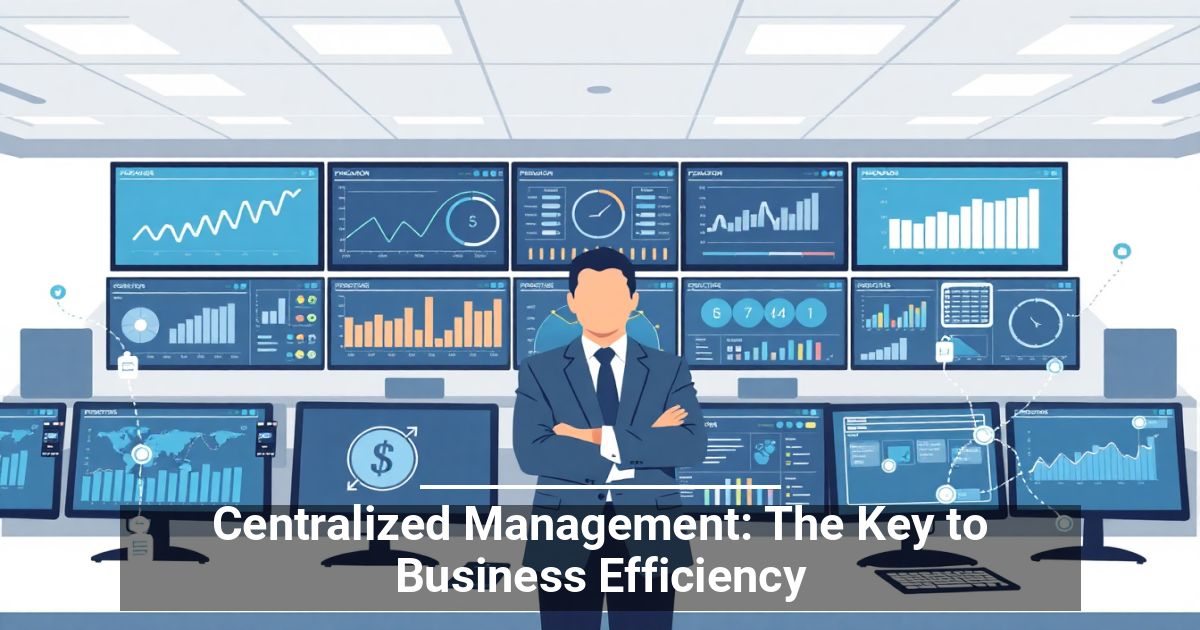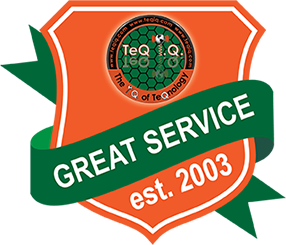"Share this Info and Help a Friend"

NEW: AI Mobile and Desk Phone Service!
"AI Summary & Call Recording Transcribed on your Mobile/Desk Phone and PC"
- Perfect: You're Not Near their Desk Phone when the Phone Rings.
- Perfect: You Don't want to Call or Text from your Personal Cellphone Number.
- Perfect: You Don't want Calls on your Cellphone After Hours and Go to Voicemail.
- Perfect: Take Notes on all Calls with AI Assistant and Call Recording Transcription.
Have your All Phone Numbers Make Calls/SMS/MMS on your Mobile/Desk Phone/PC.
https://www.teqiq.com/phone
YouTube Video "Centralized Management: The Key to Business Efficiency"
Every successful business needs a clear management structure. Without one, decisions get delayed, communication breaks down, and goals start to drift.
Centralized management addresses these problems directly. This approach gives authority to the leaders, whether individuals or groups, who make the major decisions for the organization, which mid-level managers across different departments then carry out.
Understanding how centralized management works can help you define your workplace structure and improve how teams collaborate.
A Clear Structure Is the Key to Smoother Operations
In simple terms, centralized management keeps the big calls at the top. It’s a structure that gives leaders, not committees, the final say. The leadership team determines the strategy, operational standards, and policies for the entire company. Think of it as a team sharing a single playbook.
For example, a multi-store retail chain with centralized management might have a head office that determines pricing, develops marketing campaigns, and oversees supplier contracts. Individual store managers then follow those policies, keeping everything aligned with the company’s vision and standards.
That way, one store isn’t running discounts that undercut another. It also keeps customers from seeing mixed messages. The head office can also negotiate better supplier rates by consolidating orders across all locations, savings that individual stores couldn't achieve on their own.
How Organizational Control Keeps Your Business on Track
Centralized decision-making gives those with experience and access to information control over the big picture, preventing the confusion that comes from disjointed processes led by individuals with only partial insights.
That shift alone can mean improved communication. Everyone understands where decisions come from and who to approach for clarification or direction.
A centralized system also naturally promotes operational efficiency. When every department runs independently, inefficiency and waste creep in. Marketing might launch campaigns that operations can't support. Sales could promise delivery timelines that warehouses can't meet. HR might hire for roles that finance hasn't budgeted for. These disconnects cost money and damage customer relationships.
Resource optimization is where centralized management really shines. Leaders with oversight of all aspects of the business can allocate funds, equipment, and personnel where they’re needed most. Centralization also encourages streamlined processes, creating a unified plan for every department that reduces overlap, simplifies reporting systems, and cuts down on unnecessary administrative work.
When Too Many Voices Slow You Down, Try a Centralized Approach
Centralized management might sound rigid, but in practice, it often makes employees’ lives easier. And when you balance central authority with employee input, major decisions come from the top, while mid-level managers and team members retain autonomy to work toward organizational goals. In fact, the most successful leaders still listen to feedback from their teams to stay connected to what’s happening on the ground.
Centralized management isn’t just about keeping control. It’s about creating clarity, accountability, and efficiency across your organization.
It’s no coincidence that brands like McDonald’s and FedEx rely on centralized systems. They’ve learned that when everyone follows one playbook, the business runs smoothly. The trick is keeping that structure flexible enough to grow with you.



